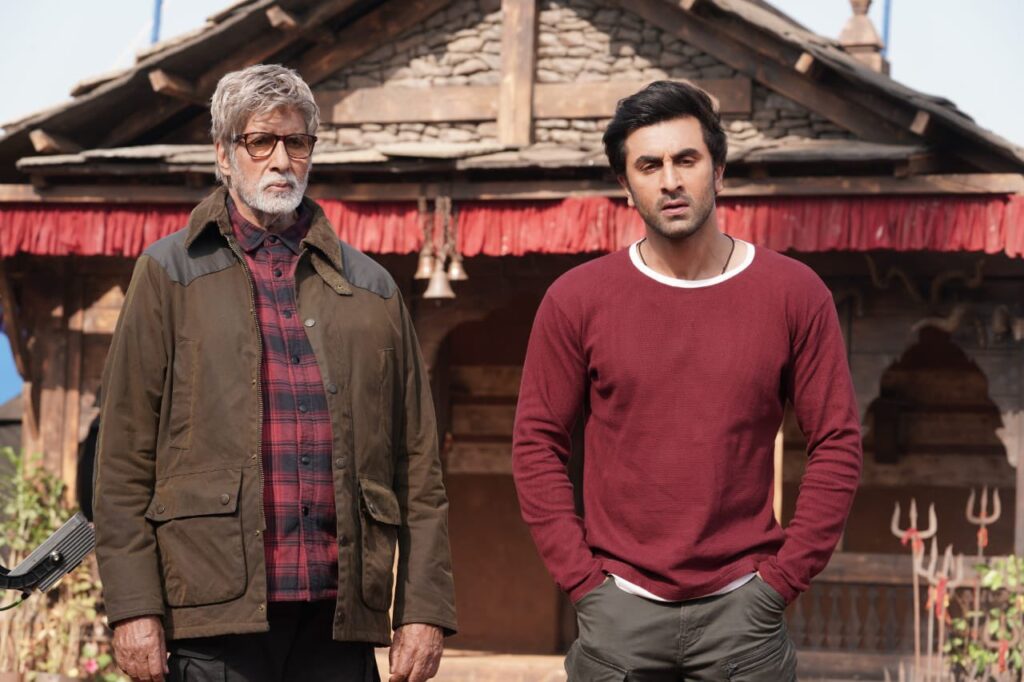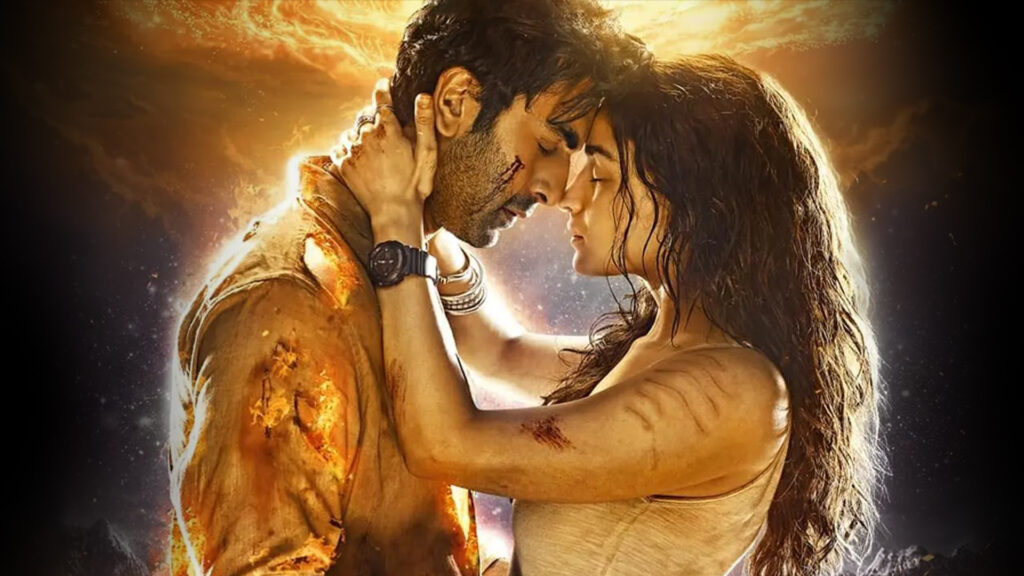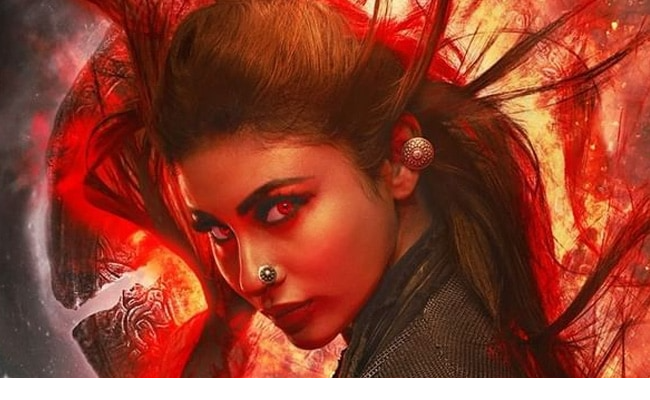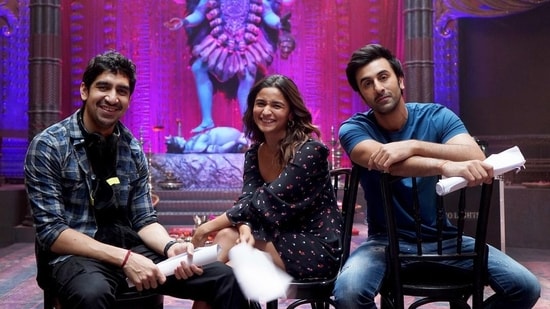Imagine yourself at a wedding buffet. You stride along with your plate, glancing down every dish at disposal. All of them seem lip-smacking. Your taste buds want to relish it all but your plate can fit only as much. Quite likely that you’d give some items a pass. That plate in your hand is the range. And that buffet, Brahmāstra.
In the trail of being extremely palatable, the Ayan Mukerji magnum opus becomes a prey of narrative overload. A film so desperate to achieve magnanimity, Brahmāstra writes cheques that its material can’t cash. It’s like that rushed mail you shoot to your team and forget to add the attachment.
In a nutshell it’s the origin story of a chosen one unlocking his relationship with powers seeped deep in India’s mythology. Inspired by Asoka’s 9 Unknown Men, the protagonist Shiva has a correlation with a clan of advanced humans named ‘Brahmansh.’
His fate, fears and feat interwoven with this clan and the diatribe that ensues resultant. That’d be a spoiler free logline of the film – He who finds his day of reckoning. And that’s what strangleholds this otherwise ambitious venture.

Still from BrahmāstraThe world building of Brahmāstra is incoherent.
Everything is too conveniently placed for the “Hero” moments.
Characters enter and vanish from the story without serving much purpose. A relationship is formed overnight on the crutches of one-liners aimed to be cheeky but falling flat out cheesy.
Gigantic chaos leads to absolutely no repercussions, barring a power struggle between the good and evil. No one in this universe is aware of a galactic war and a world at the brink of extinction except the 5-6 primary characters. No aftermath on the society, no newsflashes and no panic.
The turmoil of Brahmāstra almost happens like an incognito mission taking place in an alternate reality; where passers by don’t give a damn if four folks shoot fire and lighting out of their palms and arses. Yes, this is a bit of nit-picking as the genre demands so. The fantasy genre has witnessed such action pieces for eons now, making Brahmāstra seem inorganic and uninspired. And, this has happened by design.
The film never fully delves into the world that was supposed to stand apart – The Astraverse.
The astras or powers aren’t closely dealt with. With too many subplots already affixed upon, the film presents a very cursory, birdseye view of the astras. The story somehow keeps running back to the love story between Shiva (Ranbir Kapoor) and Isha (Alia Bhatt), trying to hammer home the idea that these two are unbreakable. But the setup of this companionship is so rushed and hunky dory that one can’t take the love story seriously.

Still from BrahmāstraBad dialogues, no background for Alia’s character Isha, robs the romance of any iota emotional investment. Isha is less a companion and more a lackey to Ranbir’s Shiva. And this hokey tendency of leaping from one sub-plot to the other is a recurring theme throughout. Making the film feel like a half-cooked meal that had the ingredients of a delicacy.
The film is too farsighted for its own good. Evident attempts at planting seeds for the impending second and third instalments of this planned trilogy foils Brahmāstra‘s potential as a standalone.
Which also directs our attention now to the external factors.
Brahmāstra has arrived in an era where audiences have been warmed up to a different extent of fantasy film making. The film intends to do what Marvel attained and moved on from with Avengers: Infinity War and Endgame.
Two sides – one good and another evil, racing down a trail of mythical weapons is a dated concept. Brahmāstra lacks the novelty.
Then, there’s the scale fatigue.

Still from BrahmāstraWith RRR, KGF, Doctor Strange, Thor: Love And Thunder to name a few, viewers have been bombarded with an orchestral monotony.
Brahmāstra, rather than being a detour from these trope clad actioners is an extension of the pattern. Reasons why Matt Reeves’ The Batman worked is because it opted for a gloomy, grounded superhero film starkly different from its contemporaries.
Plus, Brahmāstra has the commerce to address. A mammoth scale of ₹410 crores obviously needs to serve the widest possible audience for recovery. Which means offering something for the casuals, the galleries, the masses. While it’s clearly noticeable that the makers wanted this film to be wholesome, the attempt to kick down a peg too many steers the film to an overdose of arcs and absence of objectivity. Making it an army tank with a Ferrari engine whose wheels fell of midway.
Brahmāstra Part One: Shiva isn’t a bad film by any stretch of imagination. It is an extremely shaky start. The visuals are mostly breath-taking. The entire cast has performed it’s part with diligence. It’s the outlook that seems synthetic.
This doesn’t feel like an Ayan Mukerji film. It doesn’t resonate his much revered artistic clarity and iconoclastic voice. This film seems like a borrowed recipe. I, alike many am a fan of Mukerji’s body and flair of work. Here, it doesn’t feel like he is being himself.
Excluding the terrific cinematography and soul stirring soundtrack, the film doesn’t hold much of redeeming qualities. Cameos by Nagarjuna and Shah Rukh Khan are elating but don’t suffice the call of the hour.
The film chatters a lot but doesn’t have much to say. A film confused between its international style and ethnic roots, Brahmāstra Part One: Shiva lacks soul. And as fans of the maker the spade needs to be called a spade. Ayan Mukerji needs to go back to the drawing board and revive his lost voice.

The man’s gotta find his suppressed moxie and come back tenfold stronger. He and the entire team needs to regroup and stop being wary of the socio-cultural climate out there. Let Brahmāstra Part One: Shiva be a lesson in pragmatism, an alarm that jolts the whole team up enthuses them to create what they ceaselessly love and truly believe in… Kyonki, pyaar se bada koi Brahmastra nahi (Because, love is the most powerful weapon).